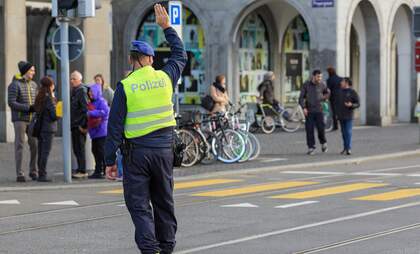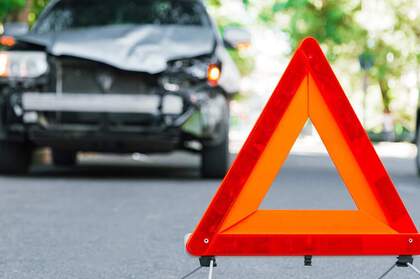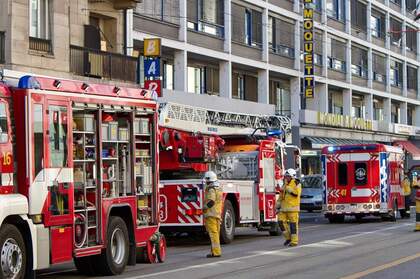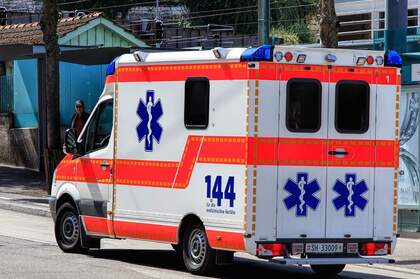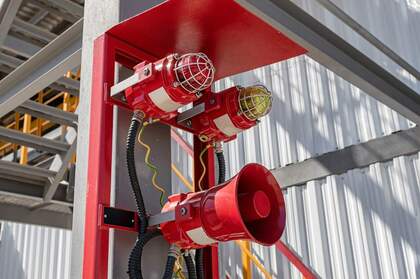The majority of Swiss police forces are the responsibility of the 26 cantons, each of which maintains its own cantonal police agency. Some cities are served by municipal police forces that cover the centre of the city and suburbs. The whole system is organised by the Swiss government through the Federal Office of Police.
How to contact the police in Switzerland
The police in Switzerland can be contacted either online, or by telephone. The police are quick to respond to calls from the public and will be there swiftly to provide assistance.
Phone number for the police in Switzerland
In the event of an emergency, the police in Switzerland can be reached on any phone by dialling 117. You can also reach the police by calling 112, where you will be put through to the police call centre. Internationally recognised police numbers such as 911 and 999 will also put you through to the police when you are in Switzerland.
Contact the Swiss police online
You can contact your local police office online; a complete list of every agency can be found on the Swiss police website. Using your local police office’s website, you can report offences and get information on how to get in touch with your local branch.
You can also file an online report with the Swiss police’s digital portal, Suisse ePolice.
Police remit in Switzerland
The police forces in Switzerland are divided between regional and federal police agencies. Regional policing in Switzerland is coordinated by cantonal police commanders, who are responsible for police operations within their canton. Federal organisations, like fedpol and the Border Guard Corps, are often tasked with assisting cantonal police agencies in larger operations, alongside their own responsibilities.
Federal law enforcement
The Federal Office of Police, or fedpol, is an organisation controlled by the Federal Department of Justice and Police. fedpol is responsible for security and criminal investigations at a governmental and inter-cantonal level, as well as conducting and coordinating national and international operations. They are also responsible for the protection of government institutions and coordinate with regional law enforcement on inter-cantonal operations.
Switzerland’s Federal Department of Finance operates the Border Guard Corps, which is responsible for border security, customs and migration.
Cantonal police agencies
Law enforcement on a regional level is conducted by 26 cantonal police agencies, as well as a number of city police agencies. Each cantonal police force is headed by a police minister or police director, who is typically a member of the executive branch of each cantonal government.
Cantonal police corps are fairly autonomous on day-to-day operations and can vary in regard to structure, duties, uniform and equipment. Municipal police agencies act independently inside their jurisdiction.
Cantonal police agencies are responsible for dealing with local criminal activity (Kriminalpolizei), security (Schutzpolizei), traffic-related offences and highway patrols (Autobahnpolizei).
In French-speaking cantons, there are only two divisions: gendarmerie (which handles security and traffic) and sûreté (responsible for criminal investigations). The Italian-speaking canton of Ticino has its own, geographically-based structure. Despite these variations, cantonal police agencies maintain a high level of cooperation.
Swiss public transport security
Alongside regional and federal police forces, security services are equally visible on Swiss public transport. The officers with Sicherheit on the back of their uniforms are usually from private security firms that are employed directly by Swiss Federal Railways to keep the peace on public transport services, particularly at night. They do not possess police power but do have the authority to remove you from any form of public transport.
Traffic violations in Switzerland
On Swiss motorways or on roads in Swiss cities, there are several traffic violations that the police monitor for. The majority of infractions are dealt with using a fine or written warning, but serious offences may result in court proceedings.
Most common traffic violations in Switzerland
Some of the most common traffic violations that you may encounter in Switzerland are:
- Running red lights
- Unsafe overtaking on Swiss motorways
- Blocking junctions
- Speeding fines
Parking fines in Switzerland
Other than speeding fines, the most common traffic violations are parking fines. This is where a vehicle is parked in an unsafe or incorrect space, or has not paid the required toll to park in a certain location. Traffic wardens are employed by the local council (Gemeinde) and will perform regular sweeps to make sure everyone is parked legally.
Fines for incorrect parking range from 25 to 50 Swiss francs per day before the car is reclaimed. Traffic wardens have the right to impound your car if it is parked incorrectly or payment has not been made, leading to a towing fee of 100 to 200 Swiss francs.
Use of force by police in Switzerland
Police in Switzerland are authorised to use firearms to arrest or prevent the escape of someone who has (or is suspected to have) committed a serious offence. Police officers are only permitted to use a weapon as a last resort. Tasers and pepper spray are permitted to be used by police in Switzerland.

